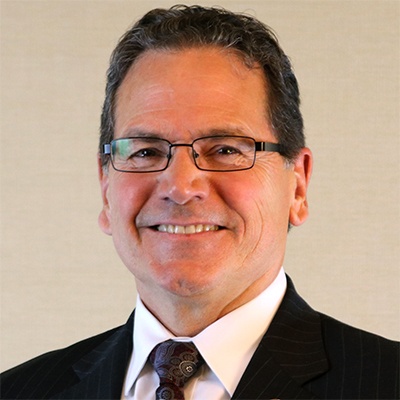Summary:
Healthcare leaders must now assess their organizations for secondary pandemic casualties, and these leaders must also invest in building healthcare workers’ resilience so that front-line workers are better equipped to manage their stress for the remainder of the COVID-19 pandemic.
Healthcare leaders must now assess their organizations for secondary pandemic casualties, and these leaders must also invest in building healthcare workers’ resilience so that front-line workers are better equipped to manage their stress for the remainder of the COVID-19 pandemic.
In his CEO Article published in the May/June 2020 Physician Leadership Journal, Dr. Peter Angood discussed how our healthcare industry must continue to evolve and develop the resilience necessary to manage the adversity created by COVID-191. In this same journal, Dr. Arthur Lazarus described how physicians suffer high rates of burnout, depression, suicide, PTSD, and substance abuse disorders (and how healthcare system changes represent the “cure” to solving these physician issues)2.
The COVID-19 pandemic is demonstrating physicians are not the only healthcare workers dealing with stress and burnout: there are front-line workers also affected. In a June 2020 JAMA Article3, sources for COVID-19 pandemic-induced anxiety were described: recurrent exposure to seriously ill and dying patients, PPE shortages, fear of contracting COVID-19, fear of exposing family members to COVID-19, social isolation, and other unique issues … all rapidly converged upon healthcare workers. The resultant anxiety levels proved overwhelming for many front-line workers … and some are now demonstrating signs of poorly managed stress. Their recovery will require more than correcting system inefficiencies and revising bureaucratic payment processes.
Initial hot-spot healthcare organizations have successfully managed the prolonged peak of COVID-19 patients, but some of their leaders have not yet realized they incurred secondary pandemic “casualties.” While organizations are transitioning to a manageable pandemic workload, the time is now for leaders to perform two critical “recovery” actions:
Identify and support those healthcare workers with poorly managed pandemic stress
Train their workers to be (more) resilient
Action 1 requires healthcare leaders to identify workers who are poorly managing their pandemic related stress. Due to the stigma often attached to mental health diagnoses, however, leaders cannot rely on healthcare workers self-reporting these symptoms. Organizations must proactively identify, train and empower rounding teams to listen and provide empathetic communication opportunities for staff working in high-stress environments. When poorly managed stress is identified, the team should provide and communicate “natural” recovery tools (e.g., healthy diet, sleep hygiene, exercise, stress-reducing techniques, nature walks, etc.). And when appropriate, rounding team members should connect severely affected workers to available counseling and therapy resources.
Resilience can be learned through training and practice. Many organizations offer voluntary health promotion programs that emphasize healthy diets, routine exercise, and sleep hygiene; these 3 items, however, are foundational to building and sustaining resilience. Some organizations also provide workers access to stress-reducing “tools” (e.g. yoga, mindfulness exercises, biofeedback, aroma therapy, etc.), but employee use of these modalities is equally voluntary. Action 2 requires healthcare leaders to provide resilience training and routine opportunities for practicing stress-reducing techniques (and perhaps incentives designed to motivate healthcare workers to build and sustain their personal resilience).
The COVID-19 pandemic has caused many front-line healthcare workers to be negatively impacted by stress. Healthcare leaders must now assess their organizations for secondary pandemic casualties, and these leaders must also invest in building healthcare workers’ resilience so that front-line workers are better equipped to manage their stress for the remainder of the COVID-19 pandemic. Continuing to address burnout and stress as unique physician issues will only result in many healthcare workers becoming unavailable for the anticipated 2nd wave of the pandemic.
References1Angood. Physician Leadership in Crisis and Recovery. Physician Leadership Journal, May/June 2020.
2Lazarus. Improving Physicians’ Mental Health by Treating a Sick Healthcare System. Physician Leadership Journal, May/June 2020.
3Shanafelt, Ripp & Trockel. Understanding the Sources of Anxiety Among Healthcare Professionals During the Covid-19 Pandemic. JAMA, April 7, 2020

James Gregory Jolissaint, MD, MSHoly Cross Health, Silver Spring, MarylandTrinity Health, Livonia, MichiganGreg.jolissaint@trinity-health.org
Topics
Influence
Resilience
Self-Awareness
Related
Why Are You Considering a Change? You believe it’s expected of you.Life Imitates ArtDoctoring Differently with Dr. Naomi Lawrence-ReidRecommended Reading
Self-Management
Life Imitates Art
Self-Management
Doctoring Differently with Dr. Naomi Lawrence-Reid
Professional Capabilities
Championing Physician Leadership Development: AAPL's Five-Decade Commitment Meets Healthcare's Critical Moment
Professional Capabilities
“Profiles in Success”: Certified Physician Executives Share the Value and ROI of their CPE Education
Professional Capabilities
Meet your AAPL Board of Directors: Peter Paige, MD, MMM, FACEP


